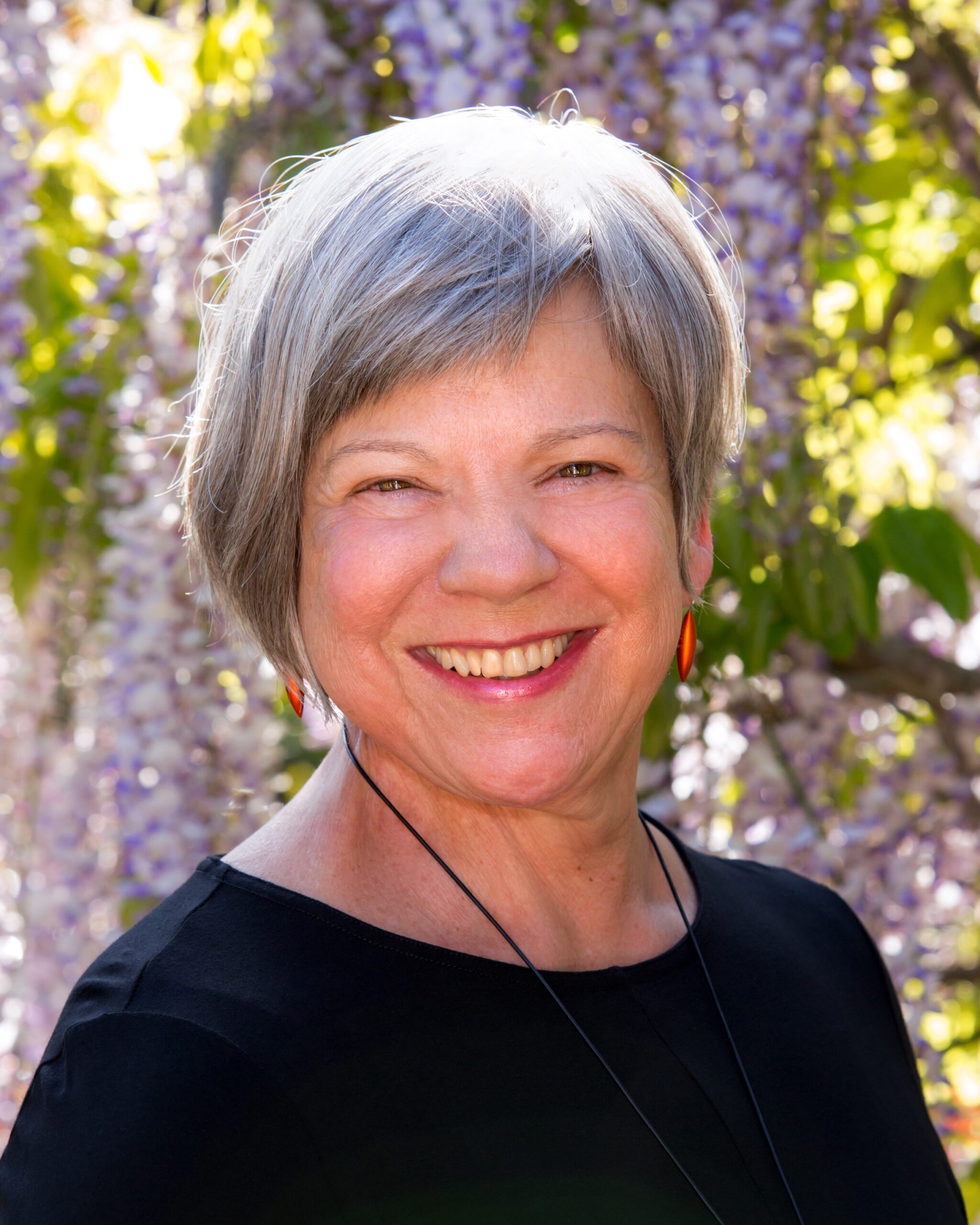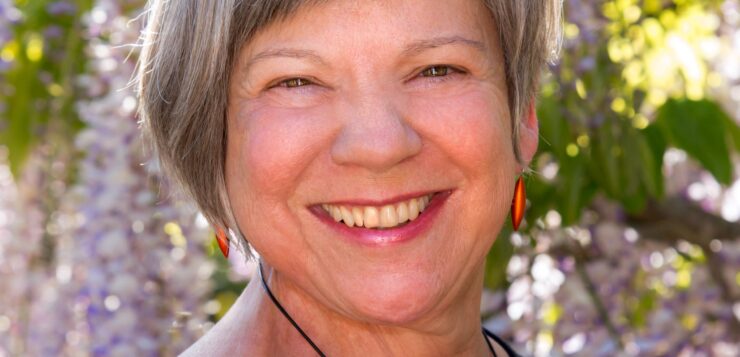I SWIRLED AROUND the dance floor to seventies tunes played by a women’s band. Free-styling by myself, I soaked in smiling faces when they swept past as I spun. My wife Tanya and I had just nailed our First Dance: a smooth West Coast swing routine to “Sweet Inspiration.” I was the skinniest I’d ever been, a benign side-effect of grappling with tongue cancer for nine months. As I twirled, I wondered: Do all these people think Tanya married me because I might die soon? During this time of my life, even in love-filled moments, my mind created uninvited, insidious thoughts like this to gnaw on.
…
Here’s how it came to pass that we were marrying while being stalked by cancer. Neither marriage nor cancer had been on our minds. We’d been together in one form or another for 28 years; our son, Cooper, was 22; and we’d been settled in our Berkeley home since his birth in 1986. We were lesbians who didn’t believe in marriage; we didn’t need such an outmoded institution to affirm our commitment. Of course, it was easy to think that marriage was not important when we couldn’t legally have one.
Imagine our surprise when, in mid-2008, the California Supreme Court legalized gay marriage! We were ecstatic at this unexpected affirmation of gay rights, and even decided to get married ourselves. But soon, we worried that our right to marry wouldn’t last long—that it would be eliminated by a vote in California or by a court case before the United States Supreme Court. We planned quickly.
Just after we announced our decision, a PET scan revealed a cancerous node that had spread into my neck. The surgery on my tongue and the six weeks of radiation earlier in the year hadn’t done the job. This news propelled us into preparing for a serious neck surgery and another round of canceling clients in my mediation practice—all while planning our wedding.
When I hear about my friends’ children organizing their elaborate weddings and see all the time and effort they spend picking the perfect venue and micro-managing every minor detail, I’m quietly amused. When you’re grappling with cancer, details like these simply don’t matter. What matters is gathering the people you love and the people who love you into a room and doing a ritual that goes back centuries in a manner that’s simple and meaningful.
I’d say we spent fewer than twelve hours planning our event, including finding the dance shoes. Imagine!
• Guest list: Easy. We decided to invite only the people who would celebrate our relationship, which eliminated all homophobic relatives.
• Invitations: Save the date by email. Invitations by mail—persimmon cards in a lavender envelope—prepared at the local copy shop.
• Location: A small social club in an old, historic building, because it had both a dance floor and a large, separate space to gather and talk. Its deep rose walls, lavender curtains, and subdued lights created an intimate setting. No destination wedding for us, just Oakland, fifteen minutes from home.
• Caterers, wines, and the band: We trusted the referrals of the owner of the club. All Tanya had to do was taste four white wines and make a choice, since my radiated taste buds were useless for this task.
• Rehearsal dinner: Not necessary. The timing of our afternoon was planned on the phone with the owner of the club.
And it all came together just fine on a hot, sunny September day, three weeks after my gruesome neck surgery, when my surgeon had assured me I would be able to dance again.
Our friend Ann officiated. We made no suggestions about what she should say. She was gracious and eloquent, as we expected. Tanya wore new blue jeans and cowgirl boots. I wore long, black flowing pants with a top of fall colors. We carried bright bouquets that our friend Margo made when she realized this detail had slipped through the cracks. The club was filled with the aroma of flowers and warm light from flickering candles. We had written our own vows a week before the wedding and read them aloud from the little leather book we’d written them in.
The afternoon was filled with tears, laughter, love, hugs, kisses, dancing, talking, reminiscing, eating, and catching sun on the patio. Did we need perfect party favors? Or a $3,000 dress? Or a beach in Hawaii with hotel rooms for family and friends? Did we need anything more at all? Absolutely not. We were happy, nourished, and thrilled with our simple event.
Four months later, I received a terminal diagnosis from my surgeon. “You have maybe double-digits of months left,” he said. The cancer had come back a third time, in tiny white bumps on my neck that he said would grow and reappear, even if he operated. He sent me for chemo to improve the quality of my life while I died. By the middle of the summer of 2009, the bumps were gone, but expected to return, and I had my last chemo treatment. My body was worn out. But my soul was just fine.
Then I failed to die. For reasons unknown. My oncologist said, “I don’t know why you’re alive, so just keep doing whatever you’re doing because we don’t know what’s working.” I call it a miracle.
Later this year, eleven years after my last chemo treatment, Tanya and I will celebrate forty years together. We officially celebrate the date when we first got together ––December 6, 1980—as opposed to all the other dates we could acknowledge, like the date we got back together after a brief break-up in our early years, or the date we moved in together, or the date we got legally married. These other dates are excellent excuses to go out to dinner. But we both know we fell in love on that night in 1980 when we realized we were “more than friends.”
 Martina Reaves, author of her memoir, I’m Still Here ., lives with her wife, Tanya, in Berkeley, CA.
Martina Reaves, author of her memoir, I’m Still Here ., lives with her wife, Tanya, in Berkeley, CA.







Discussion1 Comment
Yes,all those dates are there to mark eventful moments in our lives. How rich we are that we can pick the one’s we think are most fun to celebrate and remember. I think our wedding day is today (July 23), in 2013. But we met in 1982. Well, both are good dates to celebrate. I am so happy to read your affirming story. Thank you.